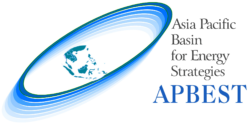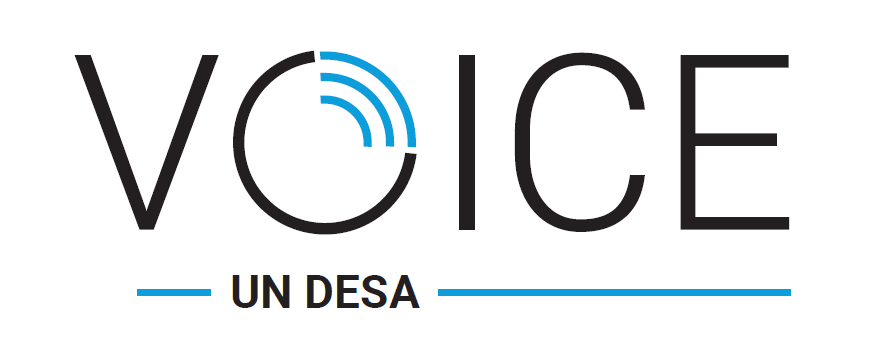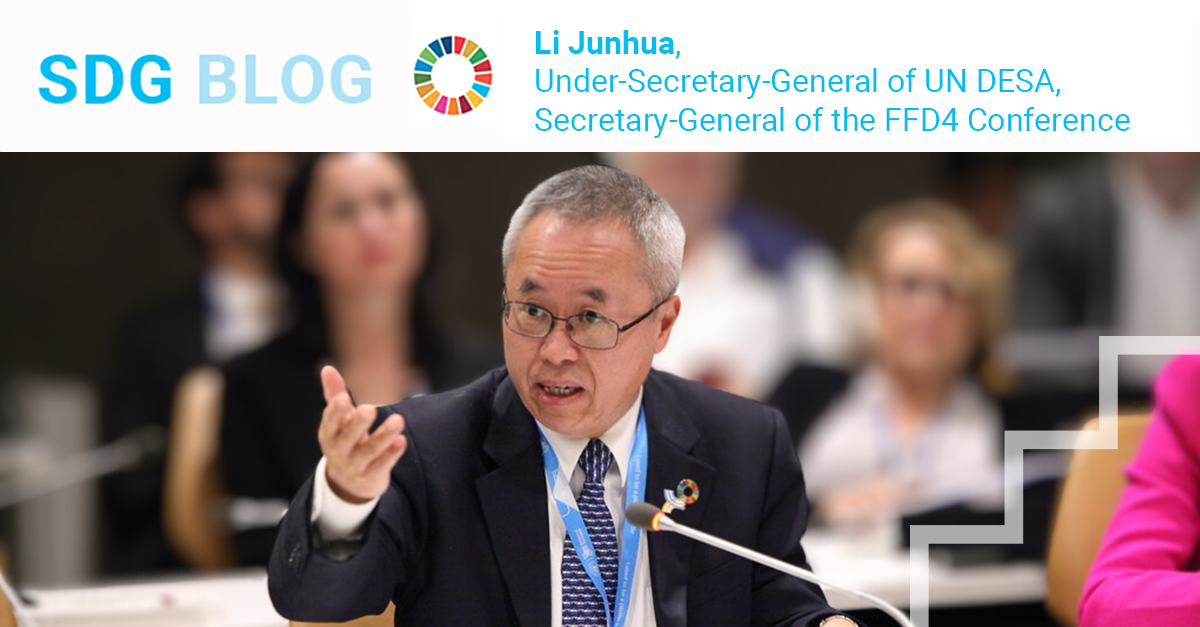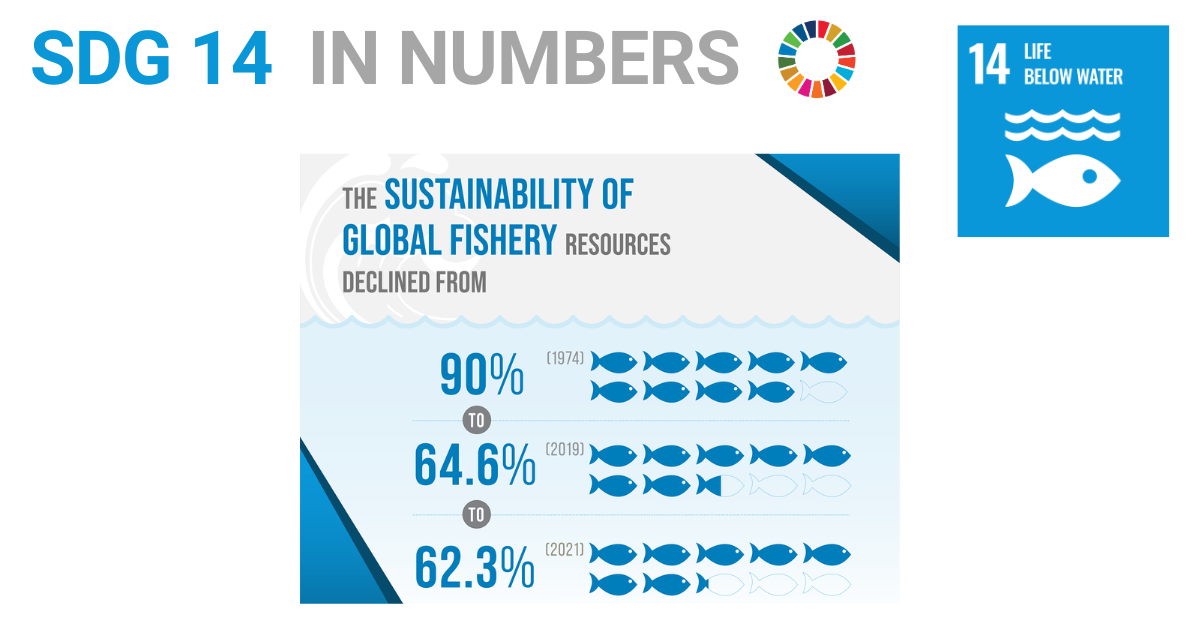Milestone moments to protect the ocean, ensure online safety and secure financing for a sustainable future
This year, UN DESA is leading milestone events aimed at advancing sustainable development for all. Many of them are lining up this month, bringing together the international community to focus on promoting a healthy ocean, our digital future and unlocking financing to deliver the promise of the Sustainable Development Goals (SDGs).
Amid busy preparations, UN DESA’s Under-Secretary-General Li Junhua discussed these events and their critical importance for our shared future on a healthy planet.
UN DESA Voice caught up with Mr. Li as the Department is ramping up efforts to support and coordinate the third UN Ocean Conference (UNOC3), the Internet Governance Forum (IGF) and the fourth International Conference on Financing for Development (FFD4) this month. For both the UNOC3 and the FFD4 Conference, Mr. Li is serving as Conference Secretary-General.
Overlooking the East River from the UN Headquarters, we started our conversation by discussing the current state of the ocean and what difference the UN Ocean Conference intends to make to protect this vital planetary resource.
“The ocean is in a state of emergency”
“The ocean is in a state of emergency,” Mr. Li said, describing an alarming situation where the health of the ocean is threatened by climate change, plastic pollution, ecosystem loss, and overexploitation of marine resources.
While the Agreement under the United Nations Convention on the Law of the Sea on the Conservation and Sustainable Use of Marine Biological Diversity of Areas beyond National Jurisdiction, also known as the BBNJ Agreement, along with the World Trade Organization Agreement on Fisheries Subsidies, have contributed to improvements, Mr. Li noted that “the international community’s response is falling short of the ocean targets outlined in SDG 14.”
It is against this backdrop, Mr. Li stressed, that the third UN Ocean Conference is taking place, from 9 to 13 June in Nice, France, seeking to boost “urgent, coordinated efforts to reverse the ocean’s decline.”
Mr. Li described how the Conference will build on the outcomes from the two preceding conferences, feature 10 Action Panels, plenary sessions, special events and hundreds of side-events. “[The Conference] will offer a pivotal moment to change course,” Mr. Li said.
He went on to explain how the event will adopt an action-oriented outcome document, referred to as the “Nice Ocean Action Plan,” seeking to unite a broad coalition of actors with the ultimate goal of turning “ambition into action, and secure a healthy, resilient ocean for generations to come”.
Building trust and ensuring that the Internet works for everyone
Following the UN Ocean Conference, we will also mark 20 years of shaping our digital future when the Internet Governance Forum convenes in Lillestroem, Norway, from 23 to 27 June. We spoke with Mr. Li about how we can build trust and ensure that the Internet works for everyone.
“To ensure technologies work for everyone, we must build digital trust and resilience, foster sustainable and responsible innovation, bridge the digital divide and promote universal access and digital rights, and strengthen meaningful digital governance,” Mr. Li said.
He also underscored the importance of digital governance, while stressing that “building partnerships in the digital world demands inclusive, transparent, and sustained collaboration across all disciplines and sectors.”
We all know how the Internet plays a crucial role in our daily lives, as well as in development. But as Mr. Li underlined, “challenges like digital divides, cybersecurity, and misinformation persist.” He also explained that this year’s IGF will contribute to the UN General Assembly’s WSIS+20 review, which will evaluate past advancements made since the World Summit on the Information Society.
“IGF 2025 is not just a milestone — it is a decisive opportunity to reaffirm our commitment to an open, resilient, and inclusive Internet, and to ensure digital technologies are governed in ways that serve all humanity,” Mr. Li emphasized.
Unlocking financing to help deliver the Sustainable Development Goals (SDGs)
After the IGF, world leaders will gather in Sevilla, Spain, for the fourth International Conference on Financing for Development (FFD4), taking place from 30 June to 3 July. We discussed with Mr. Li what actions and outcomes he hopes to see as a result of this milestone event.
“[The Conference] convenes during a challenging moment: aid levels are plunging, falling by seven per cent last year, and very likely falling even more dramatically this year; trade barriers are rising rapidly; and geopolitical uncertainty is high,” Mr. Li explained.
He continued, cautioning that “these shocks exacerbate an already off-track SDG financing gap, estimated at four trillion US dollars annually. We are now actually in a sustainable development crisis.”
Delivering an ambitious global financing framework in Sevilla will therefore be of critical importance this summer.
“Bold actions at FFD4 are essential to turn the corner on SDG financing and send a strong signal to the world that multilateralism can still deliver, and that we can still solve global problems through collective resolve and solidarity,” Mr. Li said. He also explained that there are two key avenues to close the financing gap, which are also highlighted in the draft outcome document, currently being negotiated by UN Member States.
“First, a large-scale impact-focused SDG investment push, led by public development banks, and leveraging private investment for impact; and second, ambitious reform of the international financial architecture to be more inclusive, effective, and fit for purpose for today’s challenges,” Mr. Li said.
As we wrapped up, Mr. Li shared the following message with UN DESA’s audiences: “Please join us and follow us at all these upcoming events as we work together towards a sustainable and prosperous future for everyone, for every country.”
To get a personal and a behind-the-scenes take of these and other major upcoming events, join and follow Mr. Li on his newly launched LinkedIn platform here.
For more information:
Third UN Ocean Conference (9-13 June 2025)
Internet Governance Forum (23-27 June 2025)
Forth International Conference on Financing for Development (30 June – 3 July 2025)
Expert Voices
The future of a fair and just digital world
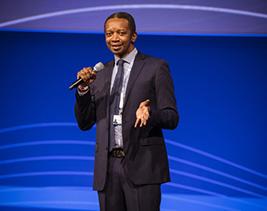
As the Internet Governance Forum (IGF) marks two decades shaping global digital policy, the need to create an equitable online future has never been greater. This year’s Forum, held in Norway from 23 to 27 June 2025, faces complex challenges, with artificial intelligence transforming our online spaces, the ever-present digital divide and growing concerns about digital trust. Chengetai Masango, Head of Office at the IGF Secretariat, explains what’s at stake.
This year, IGF will commemorate 20 years of shaping the digital future. What are some key successes of Forum, and how can we keep this momentum to ensure the Internet is people-centred and equitable?
“Since its first annual meeting in Athens in 2006, the IGF has grown from just over 1,000 participants to nearly 11,000 in Riyadh in 2024. Today, there are 176 national and regional IGF initiatives (NRIs) – one for nearly every country and region in the world – that have emerged organically to replicate the IGF model and provide an invaluable, locally-based feedback mechanism into the global Forum.
This remarkable growth reflects increased global interest in digital governance and the importance of the IGF as an open and bottom-up platform for dialogue. Over time, the IGF has brought more voices into the conversation, particularly from underrepresented groups, youth, and the Global South, and has expanded the circle to include decision-making bodies like parliaments and judiciaries.
The Forum has remained responsive to a changing digital landscape, consistently engaging with new issues – whether AI, cybersecurity or digital fragmentation. Its structure allows it to evolve alongside technological and policy developments, while its multistakeholder model ensures that diverse perspectives are reflected in the discussion.
To maintain momentum requires strategic engagement, including the continued expansion of the IGF’s Parliamentary Track, which facilitates peer knowledge exchanges between parliamentarians and with other critical stakeholders. We need to keep engaging our youth and to cultivate their critical thinking skills online. We need to continue bringing in the marginalized. Billions remain offline, and many more lack meaningful access. Ensuring local and regional experiences inform global policy remains a key priority. The IGF can also support this work by continuing to generate action-oriented outputs and insights that impact policy, foster cooperation and improve digital inclusion.”
As frontier technologies like AI rapidly change the digital landscape, we need to build trustworthy online ecosystems. How can we make sure that our digital future is established upon integrity, security and transparency?
“Algorithmic computing has long been part of digital systems, but new developments, particularly large language models, are rapidly expanding its reach and visibility. These technologies can support progress across sectors if they are designed and used with people in mind. The focus must be on how AI systems are developed, deployed and governed in ways that uphold rights and responsibilities, and the IGF provides a space where these questions are openly debated on an equal footing by diverse stakeholders.
No single actor can tackle these challenges alone; it takes global cooperation and a multistakeholder approach. Through its Policy Network on AI (PNAI), the IGF has emphasized the importance of grounding AI governance in human rights, calling for transparency, accountability and inclusive oversight mechanisms as central to building trustworthy systems.
At the same time, trust in the digital environment has been affected by multiple factors: opaque algorithmic models, the spread of misinformation, unclear platform accountability, and growing concerns about surveillance and data misuse. Addressing these concerns requires coordinated approaches that prioritize transparency, safeguards, and public awareness.
Ultimately, making our digital future trustworthy means giving everyone a seat at the table and a role in shaping the outcome. When we work openly and cooperatively, we reinforce the values of integrity, security, and transparency online. Through collective effort and understanding, we can shape a digital ecosystem that benefits and protects all users.”
Digital technologies are already playing an integral role in addressing sustainable development challenges. What can they do to limit environmental impact and proactively promote affordability, accessibility and inclusion?
“Digital tools support sustainable development across areas such as agriculture, education, health, and disaster preparedness. They can improve efficiency, enable remote access to services and inform better decision-making through data. At the same time, digitalization has environmental costs that must be addressed, particularly the energy use of data centers, AI systems, and large-scale infrastructure. The IGF’s Policy Network on the Environment (PNE) has also drawn attention to the growing problem of e-waste, underscoring the need for sustainable product lifecycles and improved systems for reuse and recycling.
Limiting environmental impact will require stronger incentives for energy-efficient technologies. Open-source approaches can help by encouraging collaborative solutions that are less resource-intensive and better tailored to local contexts. Through its annual meeting and intersessional work, the IGF brings visibility to these concerns and surfaces good case studies from around the world.
Affordability and accessibility remain key barriers. Public infrastructure investment, local connectivity initiatives, and multilingual access are among the ways to reach more people. Inclusion must be embedded into the design of technologies so that everyone – not just those already connected – can benefit from and shape the digital future.”
Follow IGF, happening on 23-27 June 2025: https://intgovforum.org/en
Things You Need To Know
3 things you should know about global efforts to save our ocean
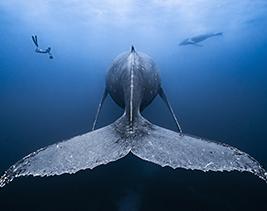
All eyes will be on Nice, France, on 9-13 June 2025, when the international community will gather for the third UN Ocean Conference, co-hosted by France and Costa Rica. As climate change, plastic pollution, and overexploitation of marine resources pose serious threats, here are three things you should know about global efforts to turn the tide towards a healthy ocean.
1. Progress has been made since the last UN Ocean Conference in Lisbon in 2022
While many challenges have worsened since the last conference took place in Lisbon in 2022, there has been significant progress in some areas. For example, the adoption of the historic Agreement on the Conservation and Sustainable Use of Marine Biological Diversity of Areas Beyond National Jurisdiction (“BBNJ Agreement”) and the World Trade Organization Agreement on Fisheries Subsidies are major strides. Member States have also continued to work to implement the 2022 UN Environment Assembly resolution entitled “End Plastic Pollution: Towards an International Legally Binding Instrument.” Taken together, these achievements will help us navigate towards a healthier ocean.
2. Ocean-based solutions remain front and center
The vital role of the science-policy interface and science-based innovation in ocean action took center stage when the UN Ocean Decade Conference took place in April 2024 in Barcelona. Following this, the 4th International Conference on Small Island Developing States (SIDS4) in May 2024 saw unanimous calls for the protection and sustainable use of ocean resources for SIDS. Ocean-based solutions have been integrated into discussions at the Conferences of Parties (COP) to the United Nations Framework Convention on Climate Change and the Convention on Biological Diversity (CBD). This built critical connections among ocean, climate change, and biodiversity and world leaders will bring these outcomes to Nice.
3. 2025 Conference ramps up call for ocean investment
It is estimated that nearly $175 billion per year is needed to achieve Sustainable Development Goal 14 by 2030, but to date, this remains the most underinvested of all SDGs. The political declaration of the UN Ocean Conference covers a range of priorities, calling to invest in a sustainable ocean-based economy, to curb overfishing, to conclude a binding treaty addressing plastics pollution, and to advance ocean science, among others. The declaration also calls for increased ocean investment from all sources.
Read the SDG Blog by Ambassador Peter Thomson, UN Secretary-General’s Special Envoy for the Ocean: “Why everybody should care about the state of the ocean”
Follow efforts and the work to save our ocean: 2025 UN Ocean Conference
Photo Credit: François Baelen / Ocean Image Bank
More from UN DESA
Read more here: https://desapublications.un.org/un-desa-voice/june-2025
